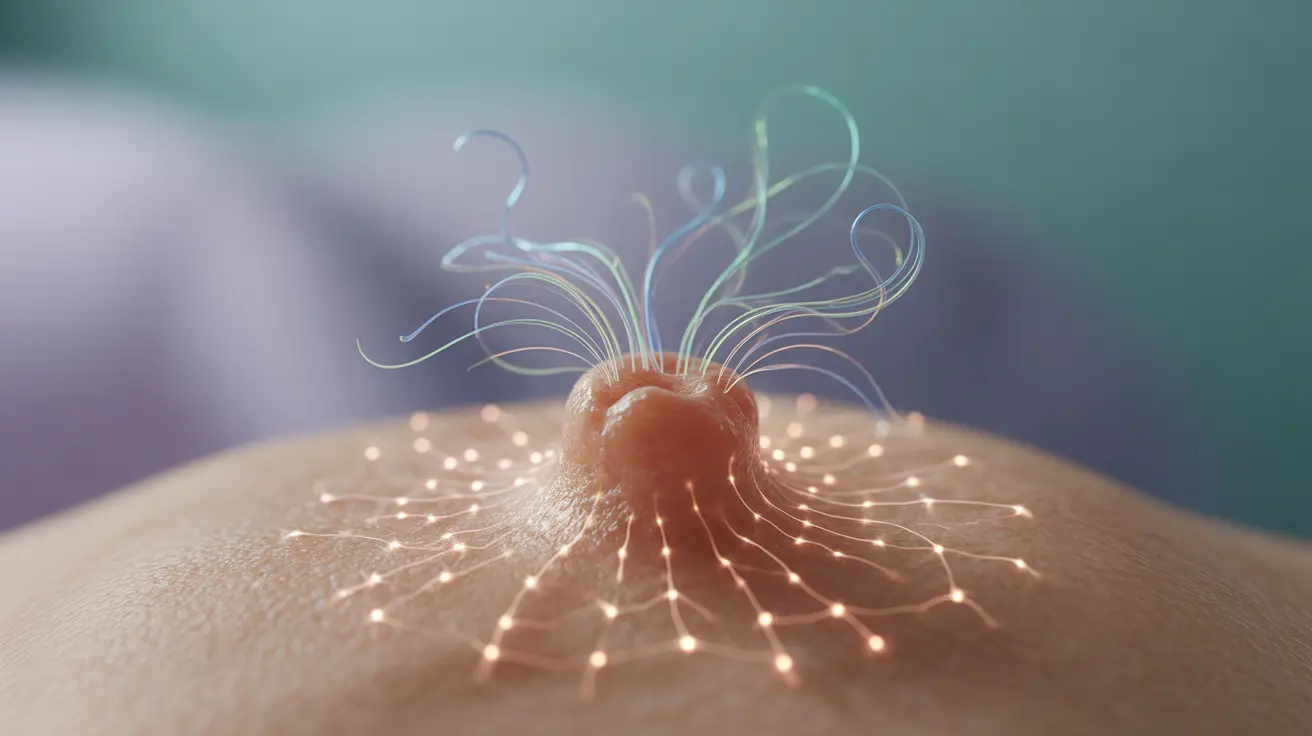If you've ever noticed your skin breaking out during stressful periods like exams or work deadlines, you're not alone. The relationship between stress and acne is complex, involving various biological mechanisms that can affect your skin's health. Understanding this connection is crucial for managing both your stress levels and skin condition effectively.
While stress itself doesn't directly cause acne, it can significantly impact existing acne and trigger new breakouts through several physiological responses in your body. Let's explore the science behind stress-related acne and discover practical ways to manage both stress and skin health.
How Stress Affects Your Skin
When you experience stress, your body releases stress hormones like cortisol and androgens. These hormones can trigger your skin's oil glands to produce more sebum, leading to clogged pores and potential breakouts. Additionally, stress can cause inflammation throughout your body, which may worsen existing acne.
The Hormonal Response
During stressful periods, your body increases production of cortisol, often called the "stress hormone." This surge in cortisol can stimulate your sebaceous glands to produce more oil, creating an environment where acne-causing bacteria can thrive. The increased oil production, combined with dead skin cells, can block pores and lead to inflammatory acne lesions.
The Stress-Acne Cycle
One of the most challenging aspects of stress-related acne is the cyclical nature of the relationship. Stress can trigger or worsen acne, and the presence of acne can cause additional stress, creating a frustrating feedback loop. Breaking this cycle requires addressing both stress management and skin care simultaneously.
Managing Stress for Clearer Skin
Stress-Reduction Techniques
Implementing effective stress management strategies can help reduce the impact of stress on your skin. Consider incorporating these practices into your daily routine:
- Regular exercise and physical activity
- Meditation or mindfulness practices
- Deep breathing exercises
- Adequate sleep (7-9 hours per night)
- Time management and organization
- Regular social connections and support
Skincare During Stressful Times
During high-stress periods, paying extra attention to your skincare routine becomes crucial. Focus on:
- Gentle cleansing twice daily
- Using non-comedogenic products
- Maintaining consistent skincare habits
- Avoiding touching or picking at your skin
- Keeping your face clean and makeup-free during workouts
Lifestyle Changes for Better Skin Health
Supporting your skin's health during stressful times involves more than just topical treatments. Consider these lifestyle modifications:
- Maintaining a balanced diet rich in antioxidants
- Staying properly hydrated
- Limiting caffeine and sugar intake
- Getting regular exercise
- Prioritizing quality sleep
- Managing screen time and digital stress
Frequently Asked Questions
Does stress directly cause acne or only make existing acne worse?
Stress doesn't directly cause acne, but it can worsen existing acne and trigger new breakouts through increased hormone production and inflammation. The stress response affects oil production and skin healing, making existing acne more severe and new breakouts more likely.
How does stress increase the severity of acne breakouts?
Stress triggers the release of cortisol and other hormones that increase sebum production, inflammation, and cell turnover. These changes can lead to more clogged pores, bacterial growth, and inflammatory responses, making acne breakouts more severe.
What are effective ways to manage stress to help reduce acne flare-ups?
Effective stress management techniques include regular exercise, meditation, adequate sleep, and time management. These practices can help regulate hormone levels and reduce the impact of stress on your skin.
Can lifestyle changes like improving sleep and diet help prevent stress-related acne?
Yes, lifestyle changes can significantly impact stress-related acne. Quality sleep, a balanced diet, regular exercise, and proper hydration all contribute to better stress management and skin health.
Why does acne heal more slowly when I am stressed?
Stress hormones can impair your body's healing processes and increase inflammation, making it harder for acne lesions to heal. Additionally, stress can weaken your immune system, which plays a crucial role in skin repair and recovery.
Remember that managing stress-related acne requires a holistic approach that addresses both stress levels and skin health. While you can't always eliminate stress from your life, you can develop better coping mechanisms and skincare habits to minimize its impact on your skin.




